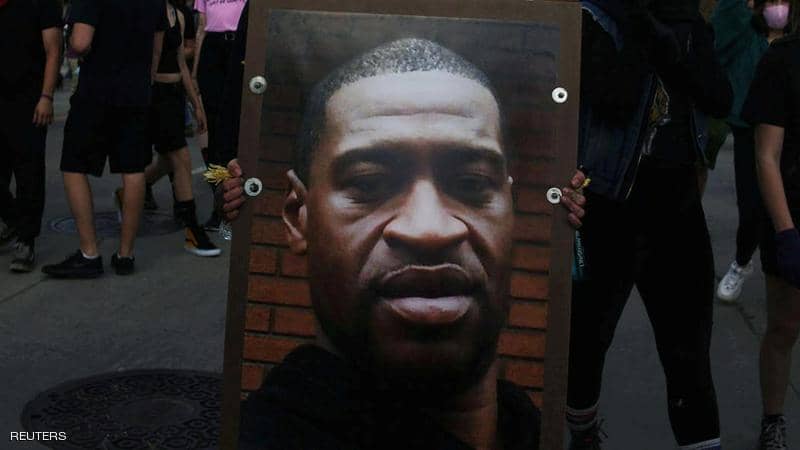Berlin (dpa) - Several sport stars have been moved by the tragic death of George Floyd in the United States last week from Bundesliga footballers to Formula One world champion Lewis Hamilton via basketball greats in the NBA.
"Justice for George," is not the first significant movement in sport, however. Here is a look at previous protests of note.
TAKING A KNEE: The NFL player Colin Kaepernick split American society and enraged Donald Trump, elected US President a fews months later, from August 14, 2016, by refusing to stand for the national anthem. Several players followed his lead either by sitting or half-kneeling at future games. "I am not going to stand up to show pride in a flag for a country that oppresses black people and people of colour," Kaepernick explained. His action came at heavy personal cost - the quarterback was released by the San Francisco 49ers in 2017 and has not been offered an NFL position since.
BLACK POWER: Sprinters Tommie Smith and John Carlos sparked uproar at the 1968 Olympic Games in Mexico City by raising their fists in a 'Black Power' salute on the medal podium. The pair, with hands in black gloves, were protesting against discrimination in the US after winning gold and bronze respectively in the 200 metres. The iconic image was used by the sports's ruling body World Athletics on Sunday in support of an equal society with the hashtag #blacklivesmatter.
SPEAKING OUT: After winning the 2019 World Cup, American star Megan Rapinoe used a New York reception to speak out against the politics of President Trump. She has since been actively involved in fighting racism and homophobia, earning worldwide acclaim but also criticism from conservatives at home.
PICTURE TIME: June 21, 1998, was expected to be a tense day in the World Cup when the United States met political rivals Iran in France. But there was little hostility over the 90 minutes and as part of a fair play day promoted by governing body FIFA, players exchanged flowers, gifts and posed for a combined team photo.
FLY A FLAG: Swiss players unveiled a banner saying "Stop it Chirac" before a 1995 international game with Sweden in Gothenburg. They were demonstrating against French nuclear testing in the Mururoa atoll. "The atomic test is directed against humanity, we wanted to join the worldwide protest," said then Bundesliga player Alain Sutter. "We have just used our role model function as leading footballers."
"Justice for George," is not the first significant movement in sport, however. Here is a look at previous protests of note.
TAKING A KNEE: The NFL player Colin Kaepernick split American society and enraged Donald Trump, elected US President a fews months later, from August 14, 2016, by refusing to stand for the national anthem. Several players followed his lead either by sitting or half-kneeling at future games. "I am not going to stand up to show pride in a flag for a country that oppresses black people and people of colour," Kaepernick explained. His action came at heavy personal cost - the quarterback was released by the San Francisco 49ers in 2017 and has not been offered an NFL position since.
BLACK POWER: Sprinters Tommie Smith and John Carlos sparked uproar at the 1968 Olympic Games in Mexico City by raising their fists in a 'Black Power' salute on the medal podium. The pair, with hands in black gloves, were protesting against discrimination in the US after winning gold and bronze respectively in the 200 metres. The iconic image was used by the sports's ruling body World Athletics on Sunday in support of an equal society with the hashtag #blacklivesmatter.
SPEAKING OUT: After winning the 2019 World Cup, American star Megan Rapinoe used a New York reception to speak out against the politics of President Trump. She has since been actively involved in fighting racism and homophobia, earning worldwide acclaim but also criticism from conservatives at home.
PICTURE TIME: June 21, 1998, was expected to be a tense day in the World Cup when the United States met political rivals Iran in France. But there was little hostility over the 90 minutes and as part of a fair play day promoted by governing body FIFA, players exchanged flowers, gifts and posed for a combined team photo.
FLY A FLAG: Swiss players unveiled a banner saying "Stop it Chirac" before a 1995 international game with Sweden in Gothenburg. They were demonstrating against French nuclear testing in the Mururoa atoll. "The atomic test is directed against humanity, we wanted to join the worldwide protest," said then Bundesliga player Alain Sutter. "We have just used our role model function as leading footballers."









 Home
Home Politics
Politics











